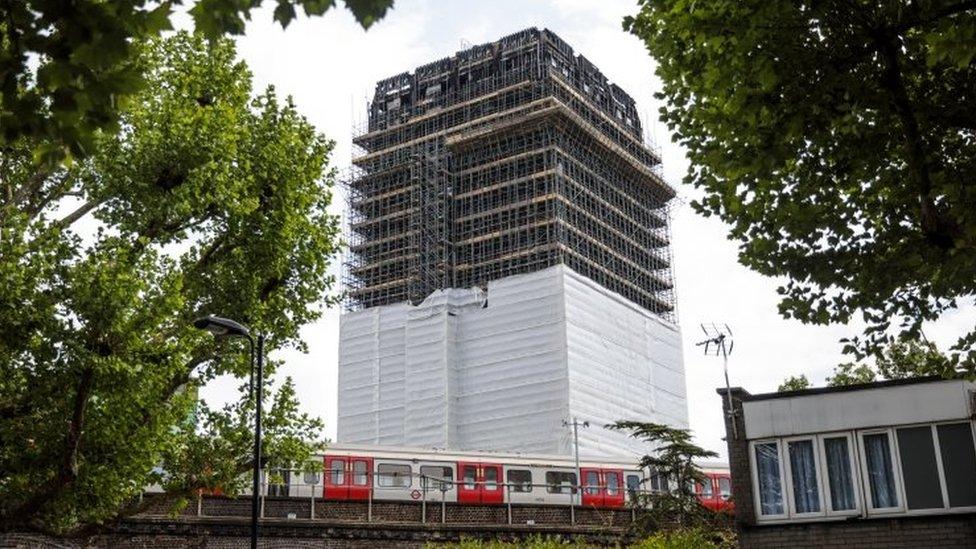Non-combustible cladding demand leads to Rockwool jobs plan
- Published
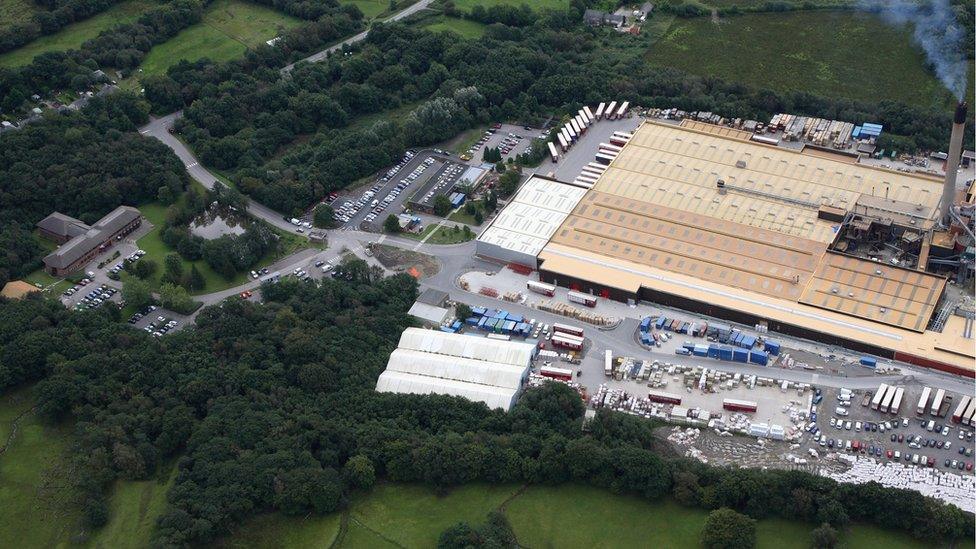
Rockwool employs about 400 people at its site in Bridgend county
A factory which makes non-combustible materials used in cladding wants to expand in the wake of the Grenfell Tower tragedy.
A production line at Rockwool Ltd, in Pencoed, was mothballed in 2008 when demand dropped due to the recession.
But because of "increasing demand of non-combustible insulation products" in the UK and Europe, it now wants to increase production.
Residents have raised concerns about safety, pollution and noise.
Rockwool has submitted plans to Bridgend council, external to build a new storage unit for production off Wern Tarw Road, with a conveyer belt taking the products to its factory nearby.
The company, which makes insulation which can be used in cladding, employs 400 people at its Welsh factory and hopes the multi-million pound expansion will create 65 new full-time jobs.
It will include the re-opening of the mothballed production line.
But a number of residents have objected to the plans with concerns about wildlife, including dormice, bats and badgers, traffic and air pollution.
Councillor Alex Williams, who called in the application to be decided by a council committee, said he believed the additional capacity would mean 200,000 tonnes of Rockwool would be produced a year, rather than the current 125,000 tonnes.
He raised residents' concerns, but said he supported the company's commitment to use local contractors and create new jobs.
"In a post-Grenfell political context, there is a move to ensure that all high-rise buildings have non-combustible cladding and I understand that Rockwool is one of the only providers to make this product in the UK," he wrote in a report to the committee., external
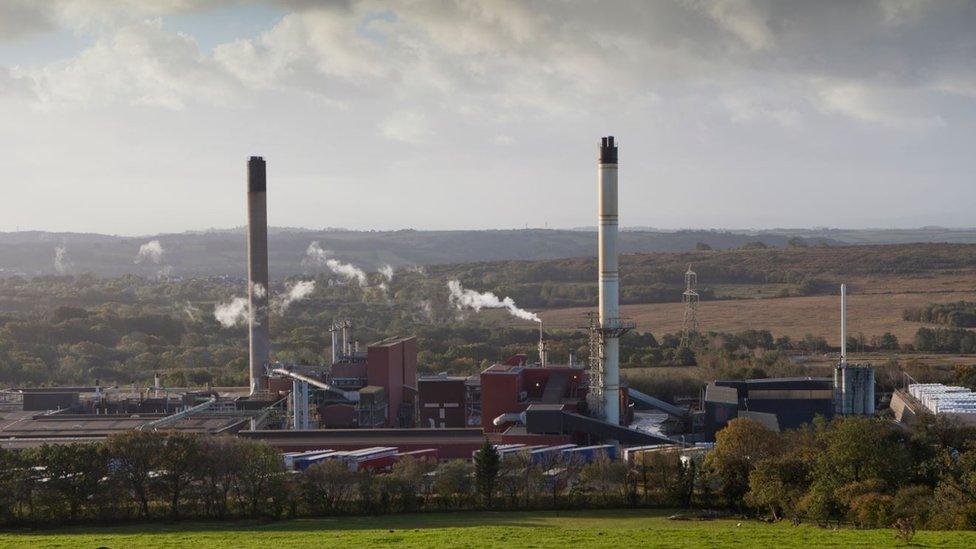
It is hoped the changes will create 65 new full-time jobs at the factory
A spokeswoman for Rockwool said the move followed a "sustained growth" in need for products in the last few years.
"Underpinning this growth are trends in urbanisation and high density, mixed-use developments, which are driving demand for sustainable insulation products that can perform across thermal, acoustic and fire safety needs," she said.
In the application, Rockwool said it would introduce mitigation measures, including building a dormouse crossing to address concerns.
Bridgend's full council backed a planning committee decision to allow the expansion to go ahead at a meeting on Thursday, 20 September.
- Published23 May 2018

- Published22 May 2018
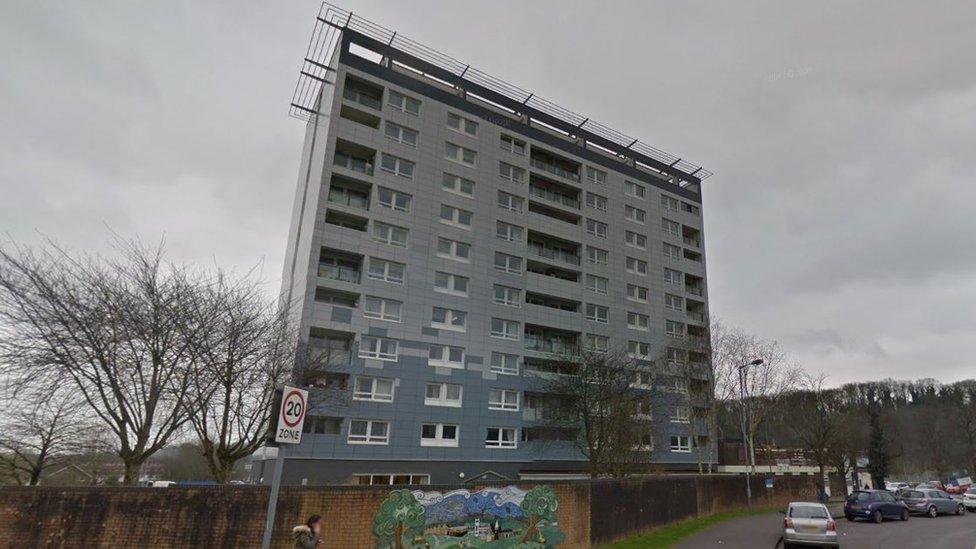
- Published27 July 2017
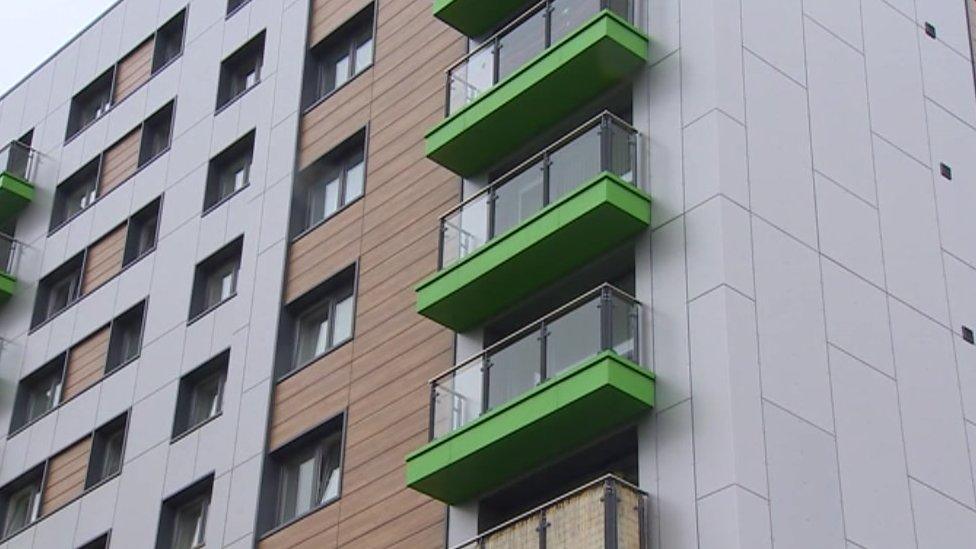
- Published17 May 2018
